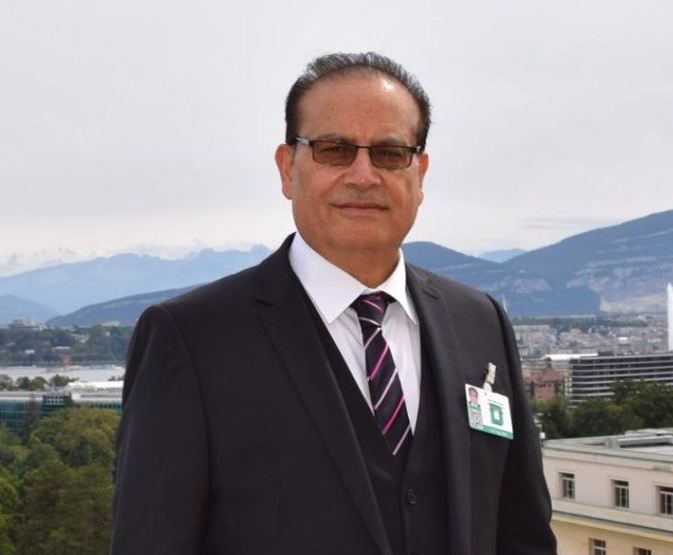Qamar Bashir
The judiciary, executive, and parliament are three distinct, exclusive, and mutually independent pillars of the state. The independence of each pillar from the influence and jurisdiction of the others, as defined in the Constitution, is the hallmark of any democratic system. It is not only the duty of each pillar to protect itself from encroachment by another but also the duty of civil society and the public at large to resist any attempt by any pillar to interfere in the workings of the others.
The most damaging, however, was the encroachment of Parliament into the exclusive domain of the judiciary, which is a fundamental component of a functioning democratic system. The Parliament first enacted the Supreme Court (Practice and Procedure) Act, 2023. A close scrutiny of the provisions of SCPPA 2023 reveals it as a clear example of blatant micromanagement of the judiciary.
The SCPPA 2023 was initially struck down by the Supreme Court under the tenure of former Chief Justice Umar Ata Bandial. However, under the leadership of Chief Justice Qazi Faez Isa, a 15-member full court later upheld the Act. Unfortunately, Chief Justice Qazi Faez Isa’s decision effectively opened the doors of the superior judiciary to parliamentary micromanagement. The logic offered by Chief Justice Isa—that Parliament is supreme and has the right to make laws, even those that impact the independence of the judiciary—was not only flawed but also lacked solid constitutional grounding, as it threatened the principle of judicial independence.
When the Supreme Court (Practice and Procedure) Act, 2023 (SCPPA), was introduced for the first time, it micromanaged the judiciary primarily by altering how the Chief Justice’s powers were exercised. The act established a three-member committee comprising the Chief Justice and the two most senior judges to decide on the formation of benches and the initiation of suo motu action.
This change meant that the Chief Justice no longer had the sole authority to form benches or take suo motu notices, which had previously been an essential aspect of the Chief Justice’s autonomy. This redistribution of power effectively regulated and limited the Chief Justice’s role, thereby introducing a level of micromanagement into the Supreme Court’s internal processes.
The door to the micromanagement of the judiciary, which was left wide open due to the shortsightedness of Chief Justice Qazi Faez Isa, is now being forcefully pushed against the judiciary’s independence. Not content with the initial attempt to micromanage and bring the judiciary under the influence of the executive, Parliament has once again been used to further exert control over the superior judiciary.
While the original act mandated a three-member committee to decide on the formation of benches, the 2024 amendment provided the Chief Justice with more power by allowing him to nominate the third member of this committee. This gave the Chief Justice greater influence in constituting benches and influencing the outcome of the decisions.
The amendment imposed a “first in, first out” approach, to bind the supreme court to hear the cases in the order they were filed unless there were clear criteria or legal stipulations for urgency. Any deviation from this sequence required justification, which reduced the flexibility of the judiciary to prioritize cases based on perceived importance..
The amendment required that any suo motu action must be accompanied by a “reasoned and speaking order,” detailing the public importance and fundamental rights involved. This provision imposed additional checks on the use of suo motu powers.
A significant transparency measure introduced was the requirement that all proceedings of the superior courts be transcribed and made publicly available. This ensured that the public could access and review the judicial process, imposing a form of micromanagement over the court’s operations.
The Supreme Court (Practice and Procedure) Act, 2023, and its 2024 amendment have several provisions that contradict the constitutional principles guaranteeing the independence of the judiciary and the separation of powers as defined in the Constitution of Pakistan.
Article 175 enshrines the separation of powers between the judiciary, executive, and legislature. It states that the judiciary is to be independent and free from interference by the other branches of government. Article 191 empowers the Supreme Court to make its own rules regarding its practice and procedures. The Article 184(3) authorizes the Supreme Court to exercise suo motu jurisdiction, which is a constitutional power allowing the court to act in matters of public interest and fundamental rights.
In well-established democracies such as the United States, United Kingdom, Germany, and India, the principle of judicial independence is respected, and Parliament avoids micromanaging the judiciary. In the United States, Congress refrains from interfering in the judiciary’s procedures, allowing the courts to interpret laws independently. Similarly, the UK’s judiciary, protected under the Constitutional Reform Act 2005, operates without parliamentary interference, ensuring that judicial functions are separate from the legislative branch. In Germany, the Basic Law (Grundgesetz) guarantees judicial independence, with the Federal Constitutional Court operating autonomously to review laws in line with the constitution. India also upholds this separation, as seen in the landmark Kesavananda Bharati case, where the judiciary established that Parliament cannot alter the “basic structure” of the Constitution, including judicial independence.
The Supreme Court’s autonomy in managing its own affairs is fundamental to maintaining an independent judiciary. The imposition of external controls through the SCPPA 2023 and its 2024 amendment not only blurs the separation between the pillars of the state but also threatens the constitutional safeguards designed to protect judicial independence. This micromanagement of the judiciary is detrimental to good governance, as it undermines the checks and balances essential for ensuring accountability, fairness, and impartiality in a democratic system. To ensure the progress and prosperity of the nation, it is crucial to preserve the judiciary’s independence and prevent any interference that jeopardizes the effective functioning of the justice system, as it plays a vital role in upholding the rule of law and fostering a stable environment for national development.
Qamar Bashir
Former Press Secretary to the President
Former Press Minister to the Embassy of Pakistan to France
Former MD, SRBC, CEO, ATV












